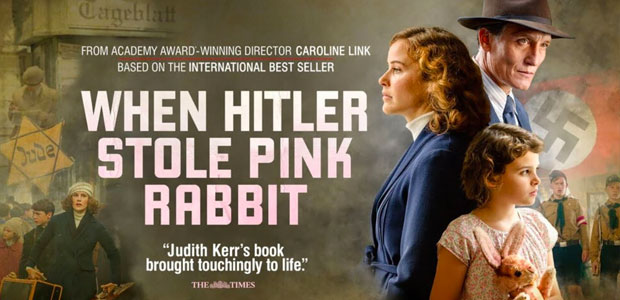
Berlin, 1933. The Kemper family was living a pretty good life, Arthur Kemper (Oliver Masucci) is a journalist, and his wife Dorothea (Carla Jury) is an Opera composer living in a large house with their two children, Max and Anna. But suddenly, they found their lives in danger when the Nazi party, despite failing to get the majority with only 43.9% of the votes, quickly gained power when Hitler was appointed chancellor. Given that Arthur is a staunch critic of the Nazis, he knew they would come after them right away. One minute the kids are just playing with each other at a birthday party, the next they have to prepare themselves to flee the country.
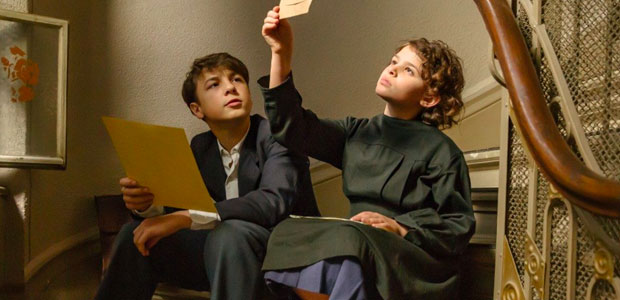
Based on a children’s book by Judith Kerr, the story is semi-autobiographical, centering on the author’s own family journey escaping Germany before WWII. The main protagonist, Anna, is only nine years old when her life changes abruptly. To avoid suspicion from nosy neighbors and friends, they have to pack light, in fact, Anna is told can only take one stuffed animal with her. Hence the title, as Anna ends up leaving behind her beloved pink rabbit. I’m immediately taken by Anna, she’s precocious, naive, and perhaps a bit spoiled, especially by her loyal nanny, Heimpi (Ursula Werner).
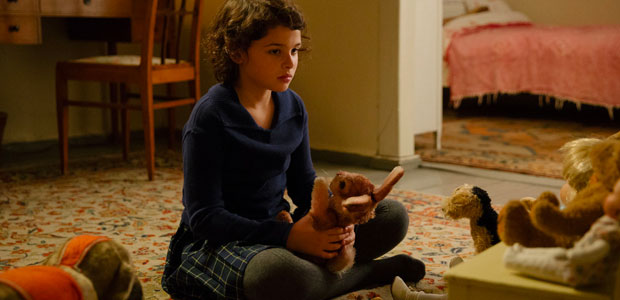
Young actress Riva Krymalowski in her feature film debut is truly the star of the film as Anna. The film’s seen through her eyes, but the film wonderfully highlights her relationship with her family and how each of them has to navigate new challenges as they have to be constantly on the move. Anna’s three-year-old brother Max (Marinus Hohmann) seems much more mature for his age and clearly because his circumstances demand it. It’s not just the kids however, both Arthur and Dorothea are struggling economically and losing their place in the world as they’re forced to drastically start over from the bottom just to make ends meet. It’s hard to believe that Oliver Masucci played Hitler in the 2015 mockumentary Look Who’s Back that I’ve talked about briefly here, he’s utterly believable as a Jewish man and a loving father here. I recognize Carla Jury, I just can’t figure out from which film, but her performance is memorable as well.
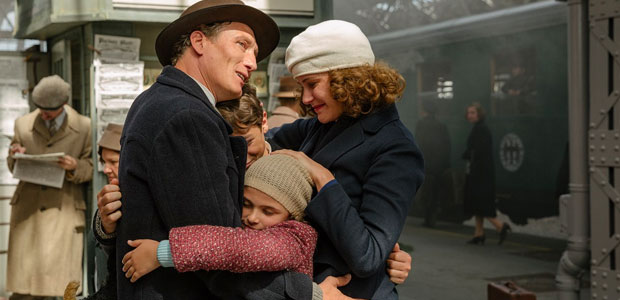
The fact it’s a WWII story involving children and that the film has some lighter moments, there might be some who would compare this to JoJo Rabbit. The ‘rabbit’ in the title is where the similarities end, however, as this one is a more straightforward family drama. Just because it adopts a view of the ‘childlike innocence’ of war and what’s to become the greatest atrocity against humanity, I don’t think the film itself is childish as some critics have mentioned in their reviews. I don’t think the lack of grit or violent scenes make the reality of WWII less distressing, especially from the viewpoint of children being displaced. The horrors of war aren’t exactly displayed on screen, but it’s told through stories, such as what happened to their close friend Julius (Justus von Dohnányi) when they discovered his grandparents are half Jewish.
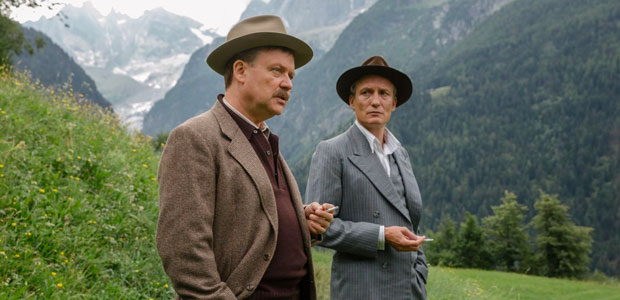
As the Kemper family moves around all over Europe–Zurich, Paris, then eventually London, they face anti-semitism and discrimination of being a refugee. The affluent lifestyle at the beginning of the film offers a stark contrast to their life now, having to live together in a cramped apartment with barely enough for a good meal day in and day out. Given there are SO many films depicting the horror of Jewish prisoners in Auschwitz concentration camps, I sometimes don’t realize that those we call ‘survivors’ who are fortunate enough to be able to flee the country before they get arrested are also victims of war. Yes of course they’d be considered the ‘lucky ones’ but I feel like their journeys are also worth telling.
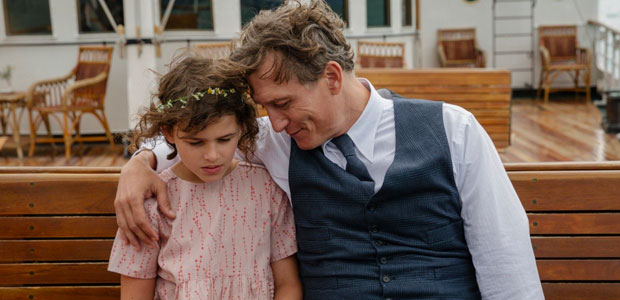
Director Caroline Link who adapted Kerr’s script to film with writer Anna Brüggemann honors the fact that the story is based on a children’s book, and so the family-friendly approach is deliberate. I love that it highlights the strength of family and how the Kempers grow closer together as they face adversity together. There’s a moment where Arthur says to his daughter ‘Maybe we’ll never be at home in one single place, but a little bit at home in many different places.’ What a beautiful quote that perfectly captures the life of a refugee. There are definitely plenty of life lessons here that also make you appreciate the simple things in life.
I find this movie poignant and delightful, I highly recommend it to watch with your whole family. I appreciate that this film shows the harrowing life during wartime without being overly somber and depressing. Certain light moments are a welcome respite to the harsh reality of the characters’ lives. High production quality, beautiful cinematography (of both the city of Paris and the lush Swiss Alps landscape), and lovely music by Volker Bertelmann all make this a memorable war drama.

Have you seen this film? I’d love to hear what you think!
///

Added it to my watchlist. Oh, I saw Hearts Want a few hours ago and… amazing short. That was incredible. Thank you for the link. I’ll have more to say about it at the end of the month.
Awww thank you for the kind words!! I so appreciate you taking the time to watch it, my friend 🙂
Pingback: The Alliance Lately: Issue No. 91 – The Minnesota Film Critics Alliance
Great review! I’ve always been fascinated with films about the Holocaust told from the perspectives of young children. This seems to be one of them. I really enjoyed “Jojo Rabbit” as an example. Here’s my review of that movie: